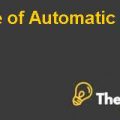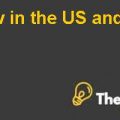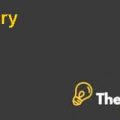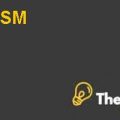Hindustan Unilever Limited Case Help
Introduction
Hindustan Unlived Limited is the Consumer Goods Company, the subsidiary company of a British company known as Unilever, which has strong roots market in various countries regarding consumer goods. The headquarters of Hindustan Unilever Limited is in Mumbai, India, while Sanjiv Mehta is the company’s CEO. The company has various versatile products, including beverages, cleaning agents, personal care products, beverages, and other fast-moving consumer goods. (Ramachandran, February 01, 2019)
The company was established in 1931 while Hindustan Unilever was initially known as Vanaspati Manufacturing Co, while in 2007, it was renamed Hindustan Unilever Limited. The three companies were merged into Hindustan Unilever Limited in November 1956. The company provides qualitative products to their customers, and it has a high market value across India. In 2019, the portfolio of HUL had around 44 product brands in 14 categories. (Tahilyani, August 02, 2019)
In 2018 the company had 18,000 employees while having clock sales of around ₹34,619 crores. The company is a fast-growing company in India regarding customer goods. The company has a large marketplace across India because it provides its customers with the best quality of products. That is as it has the deeply rooted marketing strategies that create customer value and retain its customers. (Sinha, January 05, 2010)
Problem Statement
Hindustan Unilever Limited is the leading company in India because of the services provided to its customers. But specific problems cause a decline in the mark value of the company. The cutting price war in the FMCG industry is the company’s main problem through which the company has suffered for many years. Internal and external issues can influence the company, including management issues i-e different unions of the company due to mismanagement in the unions’ company would face managing issues. (Rajan, February 23, 2005)
While there are various other multinational brands and local brands entering the market that can create tough competition for the company? Most of the products that the company manufactures lack natural resources due to the market value, so it is a threat for the company to retain their market value. A company needs to use natural resources instead of raw materials that could harm the environment. The company should prefer natural resources.
Situational Analysis
HUL is a fast-moving consumer goods company that is the subsidiary of Unilever Company, which has strong local roots across the globe. The company’s strategic management is well managed while consistently growing its economic health.
SWOT Analysis
Hindustan Unilever Limited has strong marketing management and colossal market value. Through SWOT analysis, the external and internal factors will be discussed that affect the company’s brand. The internal factors comprise strengths and weaknesses, while the external factors include the company’s opportunities and threats. The SWOT analysis of the company’s brand helps the company strengthen the brand value and business compared to the other companies.
Strengths of HUL
Here are particular strengths that enable the company to become the leading company compared to the other companies. The strengths are as under
- The company is the subsidiary of the British company known as Unilever group; hence it has substantial brand equity in the segment of FMCG.
- The company has more than 6M outlets across the country, including direct reach to over 1.5 M retail outlets.
- The company offers various products in more than 20 consumer’s category while having over 7 M of consumers across India using their products.
- The brand representation of the company is robust, so that is why the consumers are loyal to the company.
Weakness of HUL
- Due to the presence of solid FMCG, the company’s market share is limited.
- HUL faced various controversies regarding its skincare products.
- Most of the customers prefer natural products while the company lacks natural products due to which its market value can be upset.
- The company have the management issues regarding the wages, attendance and advance services provided by HUL during the festivals
Opportunities for HUL
- By using the legacy of its brand and through a healthy cash reserve position company can diversify its portfolio with various products.
- The company can improve the penetration in urban areas while having the ability to tap the ruler market.
- The brand power can be strengthened further by acquisitions and unions.
- In urban and regular areas, the growth rate of the FMCG sector increased rapidly, and the company can use it in an organized way as it has a strong brand position and has a vast chain of distribution.
Threats for HUL
- The competition in the market is very intense, due to which various multinational and FMCG companies are setting their feet in the market.
- The company’s dependency is on the raw material while the inflation in the raw material can disrupt the company’s market value.
- This can cause the inflation of the raw material and can cause shrink the margins as the company runs in the sector with low margins while having a high volume.
- FDI in marketing, so it allowed the international brands or multinational companies....
- Hindustan Unilever Limited Case Help
originally done case solution."}" data-sheets-userformat="{"2":14913,"3":{"1":0},"9":0,"12":0,"14":{"1":2,"2":3355443},"15":"Arial","16":10}">This is just a sample partial case solution. Please place the order on the website to order your own originally done case solution.







